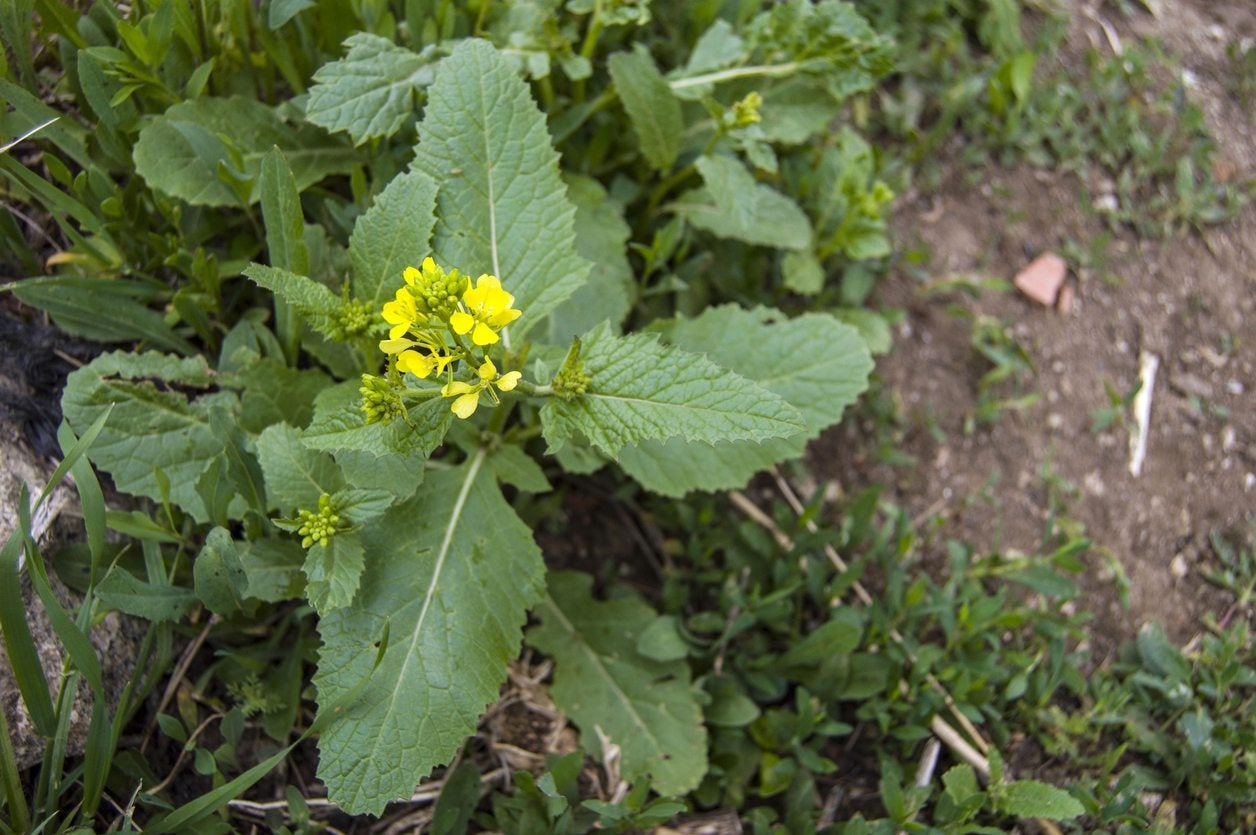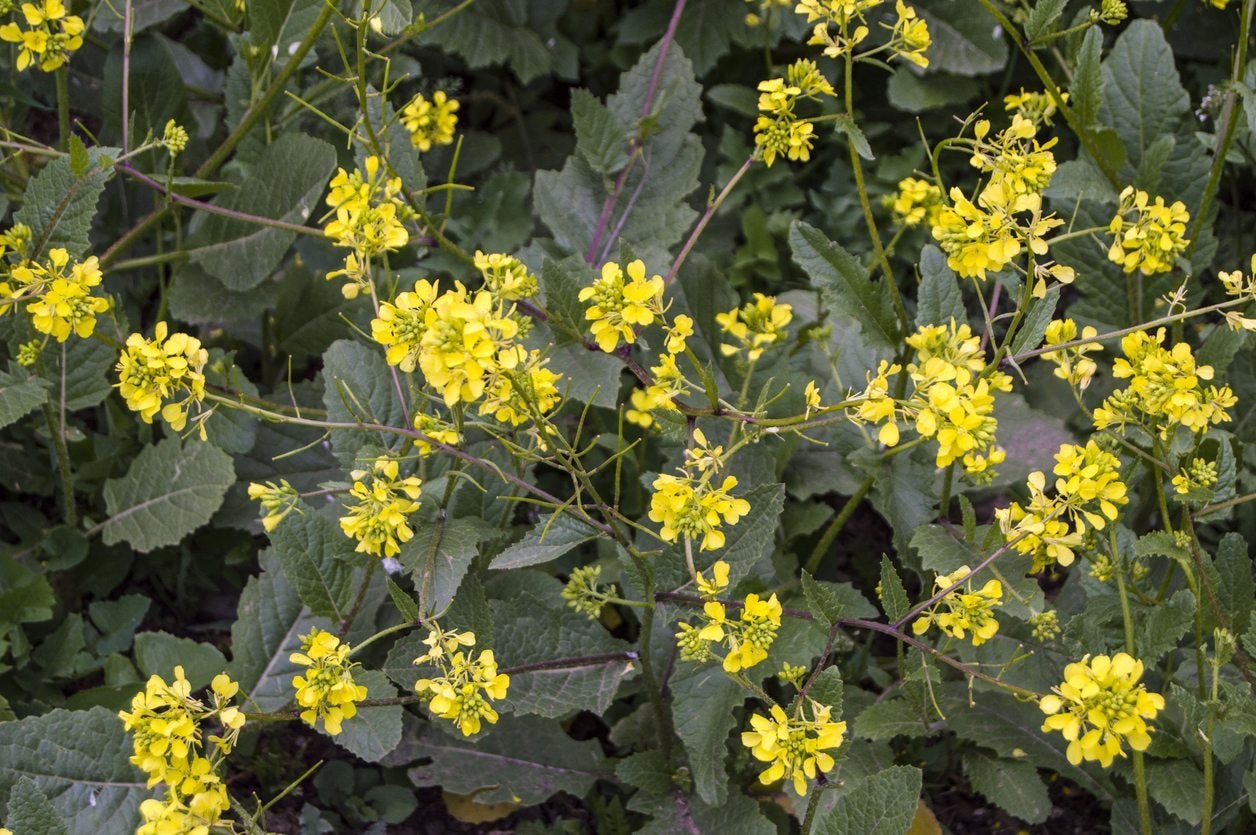Wild Mustard Weeds – Tips For Wild Mustard Control In Gardens


Wild mustard control can be a challenge because this is a tough weed that tends to grow and create dense patches that out-compete other plants. Wild mustard is a pain, but it is a bigger problem for farmers than for home gardeners. You can use both physical and chemical strategies to manage or eliminate wild mustard in your yard or garden.
About Wild Mustard Weeds
Wild mustard (Sinapis arvensis) is an aggressive weed native to Europe and Asia, but one which was brought to North America and has now taken root. It is an annual that grows about 3 to 5 feet (1-1.5 m.) and produces yellow flowers. You will often see these plants growing densely by the roadside and in abandoned areas. They are mostly problematic in cultivated fields, but wild mustard plants can take over your garden too.
Controlling Wild Mustard Plants
Since it’s so tough, getting rid of wild mustard can be a real project. If you do not want to use chemicals in your garden, the only way to eliminate this weed is to pull it out. The best time to pull mustard weeds is when they are young. This is because they will be easier to pull out, roots and all, but also because removing them before they produce seeds will help limit future growth. If you have too many to pull, you can mow down wild mustard before seed production, during the bud to bloom stages. This will limit seed production. Unfortunately, there are no other cultural or biological control methods for wild mustard. Burning does not help, nor does allowing animals to forage. The seeds of wild mustard can actually be toxic to livestock.
How to Kill Wild Mustard with Herbicides
Herbicides can also be effective in controlling wild mustard. There are several different types of herbicides that will work against wild mustard, but there are some that the weeds have grown resistant to and that will no longer work. There are different varieties of wild mustard, so first determine which type you have and then ask your local nursery or university agricultural department to help you select the right chemical.
Gardening tips, videos, info and more delivered right to your inbox!
Sign up for the Gardening Know How newsletter today and receive a free copy of our e-book "How to Grow Delicious Tomatoes".

Mary Ellen Ellis has been gardening for over 20 years. With degrees in Chemistry and Biology, Mary Ellen's specialties are flowers, native plants, and herbs.
-
 Looking For Plants To Give You The Soft And Fuzzies? Try These 5 Fuzzy Leaf Plant Options
Looking For Plants To Give You The Soft And Fuzzies? Try These 5 Fuzzy Leaf Plant OptionsLovers of texture, drama, silver foliage and tactile plants will adore these special sensory garden additions. These fuzzy leaf plant options will leave you all aglow
By Susan Albert
-
 Get Ready For A Summer Of Hummers! Grow These Full Sun Hummingbird Plants and Flowers
Get Ready For A Summer Of Hummers! Grow These Full Sun Hummingbird Plants and FlowersIf you’re lucky enough to enjoy a sunny backyard, make sure you are maxing out on your pollinator opportunities and grow these full sun hummingbird plants and flowers
By Tonya Barnett
